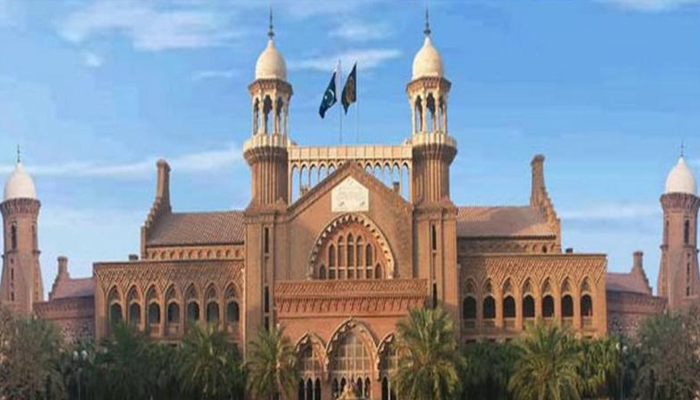July 17, 2023 geo.tv

- Court earlier ruled that army could not indulge in corporate farming.
- Punjab govt maintained court cannot regulate agricultural policies.
- Order issued by two-member LHC bench headed by Justice Najafi.
LAHORE: The Lahore High Court (LHC) Monday suspended an order of the same court that prohibited the transfer of land to the Pakistan Army for corporate farming on a 20-year lease.
The order came as a two-member bench — headed by Justice Ali Baqar Najafi — heard the Punjab government’s petition seeking the annulment of a ruling by the LHC’s single-member bench.
The Punjab government maintained that the complainants — Lahore-based lawyers — were not affected parties and noted that it is not the court’s job to regulate agricultural policies.
The LHC’s single-member bench — headed by Justice Abid Hussain Chattha — had in June declared illegal leasing of land to the Pakistan Army for corporate farming, observing that the armed forces had no constitutional and legal mandate to indulge in corporate farming.
Justice Chattha also said in a written judgement that the caretaker government of Punjab had no constitutional mandate to allot land for corporate farming.
The Punjab government had notified the allotment of over 45,267 acres of Punjab land to the army in three districts — Bhakkar, Khushab, and Sahiwal — for a corporate agriculture farming project.
The allotment came after, on February 8, the director general of strategic projects of the Pakistan Army wrote to the Board of Revenue in Punjab requesting it to grant up to 1 million acres of state land in Punjab for “corporate agriculture farming.”
In the letter, seen by Geo News, the Pakistan Army cited rising oil and food prices as a serious challenge to Pakistan’s economy and its agriculture sector, arguing that it had the experience to develop “waste barren lands.”
For the project, the military proposed the immediate release of 10,000 to 15,000 acres of irrigated land, followed by 100,000 acres by March 1 and then the rest of one million acres by April.
A month later, the Governor of Punjab and the Pakistan Army signed a joint venture agreement to lease up to 1 million acres of state land in Punjab to the army for corporate agriculture farming, for a period of 20 years.
The agreement also finalised a profit-sharing mechanism, under which 20% of the profits earned from the venture will be used for research and development, while the remaining profit will be divided 50-50 between the government of Punjab and the army.
In the judgment, the LHC calculates that 1 million acres of land in the province were “around 2% of the total territory of Punjab”.
But none of this information was made public, until an official notification, dated March 10, began circulating on social media which revealed that the Punjab government had decided to hand over 45,267 acres of state land in Bhakkar, Khushab and Sahiwal to the army for corporate farming.
Soon after the notification went public, Lahore-based lawyers Fahad Malik and Rafay Alam, representing the NGO the Public Interest Law Association of Pakistan, filed a petition in the LHC challenging the government’s decision.
They argued that the grant of land by a caretaker government was “unconstitutional and illegal”, as the scope of a caretaker government was limited to performing day-to-day functions, and that Pakistan’s Constitution did not allow for the military to take up commercial ventures.
In a press conference held on April 25, Major General Ahmed Sharif Chaudhry, the director general of the military’s media wing, the Inter-Services Public Relations, was asked about the military’s attempt to get state land for corporate farming.
He responded that developing and developed countries had used their militaries, in some way or the other, to improve their agriculture sector, but added that the final decision regarding what role the military can play in making the lands more cultivable was that of the provincial and federal government.
